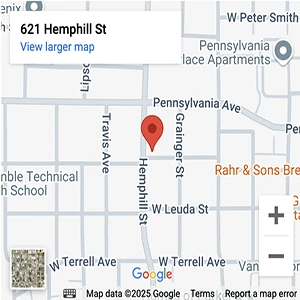Is Lane Splitting Legal in Texas?
Lane splitting is a common motorcycle technique that refers to the act of riding between passenger vehicles in slow-moving traffic. Motorcycle advocates argue that in certain conditions, lane splitting is much safer than riding with a car in front of you and one behind you because it reduces the risk of fatal rear-end collisions in heavy traffic; however, it remains illegal in 49 states.
If you sustain injuries in a motorcycle accident but you were violating traffic laws at the time of the collision, it could affect your eligibility to secure compensation for some or all of the damages you incurred. Although lane splitting may be safer in some circumstances, you need to keep all local laws in mind in order to make informed decisions when riding your motorcycle in traffic.
If you were injured in a motorcycle collision with a distracted driver in Texas, contact the Cooper Law Firm. You may be entitled to compensation for medical bills, lost wages, and non-economic damages. Call 903-297-0037 to schedule a free case evaluation with a personal injury lawyer in Longview.
Is Lane Splitting Legal in Texas?
Lane splitting is currently illegal in the state of Texas, which means police can pull you over and issue a citation if they see you doing it. It also means if a car sideswipes you while you are lane splitting, you may not be able to recover compensation for the damages.
Lane splitting is the norm in countries all over the world, though, and the Texas legislature has recognized that there may be some merit to legalizing it in the state. According to Motorcyclist, Texas Senate Bill 228, which lawmakers introduced in December 2016, would make it legal for riders to drive between cars on controlled-access highways in slow-moving traffic.
The legislation would allow motorcyclists to perform lane splitting in congestion that is moving slower than 20 mph, as long as they do not travel more than 5 mph above the current flow of traffic.
What Else Should I Know About Motorcycle Laws in Texas?
As a motorcycle rider, you have an obligation to know and abide by all applicable traffic laws. Helmet laws are perhaps the most important to follow because head injuries can have devastating and even fatal consequences.
In the state of Texas, all motorcycle, moped, and scooter operators and their passengers must wear helmets that comply with Federal Motor Vehicle Safety Standard #218; however, there is one exception. Individuals do not have to wear a helmet if they are 21 or older, have comprehensive health insurance coverage, and have completed a motorcycle safety course. According to the Texas Department of Public Safety, police cannot stop or detain a motorcyclist solely to determine whether he or she meets these conditions.
If you were hurt in a motorcycle collision with a distracted driver, contact a personal injury lawyer from the Cooper Law Firm to discuss your case. N. Eric Cooper will gather evidence, interview witnesses, and help you file a claim for the maximum possible compensation.
Call 903-297-0037 to schedule a free consultation with an accident attorney in Longview. To learn more about motorcycle accidents in Texas, visit USAttorneys.com.

















